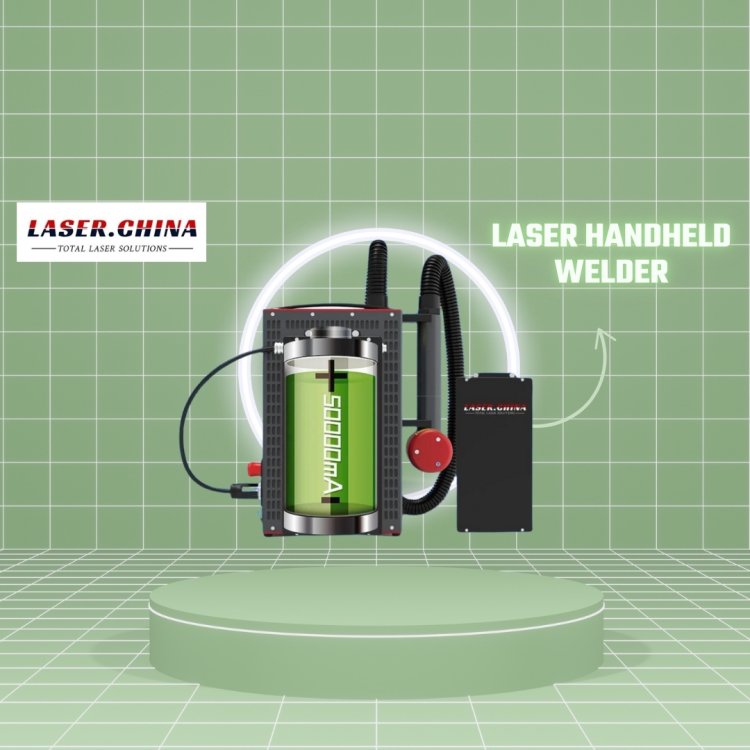Why are China-made laser welders increasingly popular in global manufacturing
China-made laser welders have gained significant traction in the global manufacturing industry due to their combination of affordability, advanced technology, and widespread availability.
Share this Post to earn Money ( Upto ₹100 per 1000 Views )

China-made laser welders have gained significant traction in the global manufacturing industry due to their combination of affordability, advanced technology, and widespread availability. These machines, which use concentrated beams of light to weld materials with precision and minimal distortion, are now considered serious contenders in the world of industrial welding—rivaling even the top-tier European and American brands.
One of the main reasons behind the rising popularity of Chinese laser welders is cost-effectiveness. Compared to Western-made laser welding machines, Chinese models are generally 30–50% more affordable. This makes them particularly appealing to small- and medium-sized enterprises (SMEs) that want to adopt high-end manufacturing technologies without incurring high upfront costs. By lowering the barrier to entry, Chinese manufacturers are helping more businesses transition from traditional welding methods to laser-based solutions.
Another significant factor is technological advancement. Over the last decade, Chinese manufacturers have made impressive strides in research and development. Brands such as Han's Laser, Raycus, MAX Photonics, and GWEIKE have introduced state-of-the-art fiber laser systems with competitive features—such as automatic wire feeding, touchscreen interfaces, and multi-axis motion control. Many of these machines now support a wide range of materials including stainless steel, aluminum, brass, titanium, and even some plastics.
Reliability and performance have also improved substantially. Early skepticism surrounding Chinese machinery often stemmed from concerns about quality control and durability. However, as China's manufacturing sector matured and started complying with international standards (like ISO and CE certifications), the reliability of their laser welders improved. Today, many Chinese models offer lifespan ratings of over 100,000 hours for laser sources—on par with top global brands.
Moreover, after-sales support and global distribution have become more robust. Many Chinese laser welding companies now offer dedicated customer service teams, training, and local partnerships to support international buyers. Warehousing and repair centers in regions like the Middle East, Europe, and North America have made spare parts and maintenance services more accessible than ever.
However, businesses should still be selective when choosing a Chinese laser welder. The market is diverse, with both high-quality and subpar machines available. It's critical to evaluate key factors such as laser source brand (e.g., Raycus vs. JPT), cooling systems, welding speed, power output (usually between 1000W to 3000W), and warranty terms. Reading customer reviews and checking for compliance with local safety regulations is also advisable.
In conclusion, Chinese laser welders represent a reliable and smart investment for many manufacturers—especially those looking for advanced capabilities at a lower price point. While not all machines are created equal, reputable Chinese brands are proving that quality and affordability can coexist. With careful research and due diligence, businesses can harness the power of laser welding technology from China to enhance productivity, precision, and profitability.

















